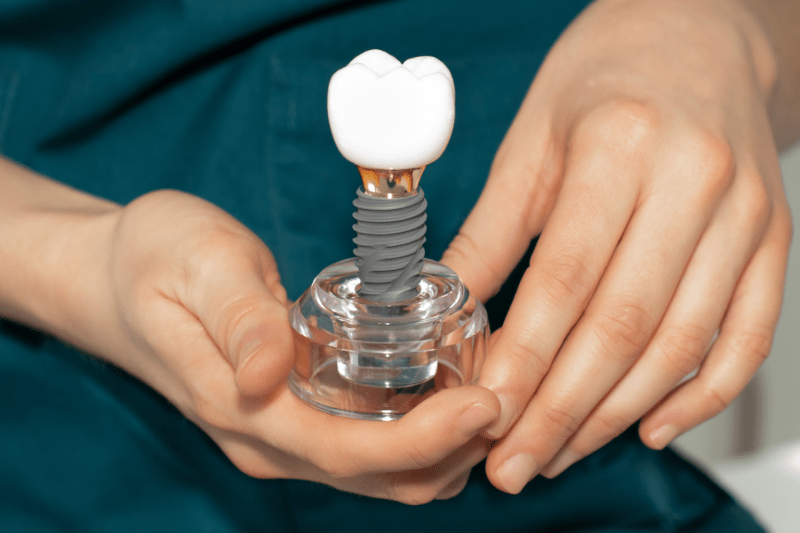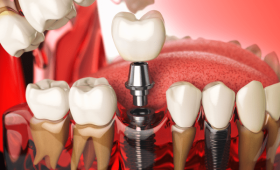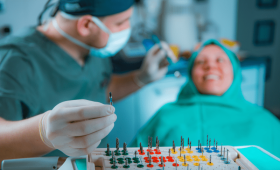What is the average cost of a dental implant in the Netherlands?
The average cost of a single dental implant in the Netherlands can vary greatly depending on the clinic’s location, the implant brand used, and additional procedures. Generally, the total cost for an implant, abutment, and crown can range from €1,500 to €3,000. Prices in large cities like Amsterdam are typically higher compared to smaller towns. This cost may not include the initial consultation, X-rays, and other ancillary services, so it’s important to get a definitive price once the treatment plan is finalized.
Why is getting an implant in Amsterdam more expensive?
As one of the largest and most popular cities in the Netherlands, Amsterdam has some of the highest living and business costs. This also applies to dental clinics. Clinic rents, staff salaries, and general operational expenses are higher than in other cities. These increased costs are directly reflected in the treatment fees. However, Amsterdam generally has clinics with the most advanced technology and experienced specialists.
What factors affect implant prices in the Netherlands?
The most important factors affecting implant prices are the brand and quality of the implant used. Some premium brands (e.g., Straumann, Nobel Biocare) are more expensive but are considered long-lasting and reliable. The dentist’s specialty and experience also influence the price; a specialist in periodontology or an oral surgeon might charge higher fees. Additionally, the cost of extra surgical procedures like bone grafting or sinus lifting is added to the total price.

Does dental insurance cover implant costs in the Netherlands?
Basic health insurance in the Netherlands generally does not cover the cost of dental implants. Some private supplementary dental insurances might cover a portion or the entire cost of the implant. These insurances usually set a specific annual maximum payout limit and cover a percentage of the treatment cost (e.g., 75%). It is important to check your insurance policy and its coverage before starting treatment.
What are the cheaper alternatives for implants in the Netherlands?
Patients looking for more affordable implant treatment in the Netherlands might consider clinics in smaller towns. Clinics in the eastern and southern regions of the Netherlands may offer more reasonable prices compared to Amsterdam or The Hague. However, cost should not be the only deciding factor. The balance between price, quality, and the dentist’s experience should be taken into consideration.
What is the process of dental implant treatment in the Netherlands?
Dental implant treatment in the Netherlands begins with a comprehensive examination and digital imaging (panoramic X-ray or CBCT). In the first stage, a surgical operation is performed to place the implant in the jawbone. In the second stage, there is a waiting period for the implant to fuse with the bone. This process generally takes 3 to 6 months. In the final stage, the abutment and prosthesis (crown) are attached to the implant.
Are Dutch dentists experienced enough?
Dentists in the Netherlands are required to comply with the European Union’s strict education and licensing standards. Dental programs at universities are of high quality. Many dentists receive additional training to specialize in specific areas like implantology. Therefore, Dutch dentists are considered to be highly skilled and experienced, and are expected to provide high-quality service.
What materials are used in implant treatment in the Netherlands?
Dental clinics in the Netherlands predominantly use titanium, a biocompatible and durable metal, for dental implants. Titanium is the most preferred material due to its ability to easily integrate with bone (osseointegration). Additionally, zirconia implants are offered for patients with aesthetic concerns. Zirconia is an ideal option for patients with metal allergies or those who want to avoid a gray shadow at the gum line.
How long does implant treatment take?
The duration of implant treatment depends on the patient’s individual situation and the procedures applied. The implant placement surgery itself usually takes an hour or less. The main waiting period is for osseointegration, the fusion of the implant with the bone, which can take 3 to 6 months. Additional procedures like bone grafting can extend the total treatment time. After that, the crown is made and placed within a few weeks.
Is implant treatment painful?
Since dental implant treatment is performed under local anesthesia, the patient does not feel any pain during the procedure. After the procedure, mild pain and swelling are normal, but this can usually be easily controlled with painkillers prescribed by the dentist. Thanks to modern surgical techniques and technologies, post-treatment discomfort is minimal.
What should be paid attention to after an implant?
After implant surgery, it is very important to follow the dentist’s instructions. For the first few days, you should eat soft foods, avoid hot beverages, and not apply pressure to the surgical area. Attention should be paid to oral hygiene, but brushing the surgical site should be avoided in the first 24 hours. Smoking and alcohol consumption should be avoided as they negatively affect the healing process.
When is bone grafting necessary?
Bone grafting is a procedure performed when there is insufficient bone volume or density in the area where the dental implant will be placed. After tooth loss, the jawbone can resorb over time. A stable bone foundation is necessary for the implant to be stable. Bone grafting is done to address this deficiency and plays a critical role in ensuring the long-term success of the implant.
What does sinus lifting mean?
Sinus lifting is a surgical procedure applied when there is insufficient bone height in the molar region of the upper jaw. The air spaces in this area, called the maxillary sinuses, can prevent the placement of an implant. In a sinus lifting operation, the floor of the sinus is gently raised, and bone graft material is placed in the resulting space.
What is the success rate of dental implants in the Netherlands?
The success rate of dental implant treatments performed in the Netherlands is quite high, consistent with international standards. A success rate of over 95% is generally spoken of. Success depends on many factors, including the patient’s general health, the dentist’s expertise, the quality of the implant material used, and the patient’s attention to oral hygiene.
How long do implants last?
Dental implants can last a lifetime with proper oral hygiene and regular dental check-ups. While the implant itself is given a lifetime warranty, the crown on top of it may need to be replaced after 10-15 years. This can happen due to wear or damage to the crown. Good maintenance directly affects the lifespan of the implant.
How to choose an implant clinic in the Netherlands?
When choosing an implant clinic in the Netherlands, it is important to check the dentist’s experience and specialization. Pay attention to the technology and implant brands the clinic uses. Patient reviews and references can provide important clues about the clinic’s quality. Additionally, a detailed and transparent presentation of the treatment plan helps you make the right choice.
How to apply for insurance for a dental implant in the Netherlands?
Applying for insurance for a dental implant is generally done through your insurance company’s website or via their customer service. The treatment plan and cost breakdown you receive from your dentist are the basic documents you need to submit during the application process. Your insurance company will evaluate these documents and inform you how much of the cost they will cover.
What technologies are used in implant treatment in the Netherlands?
Modern dental clinics in the Netherlands use the latest technologies in implant treatment. Digital radiography (CBCT) for 3D imaging, computer-aided planning (CAD/CAM), laser technologies, and digital intraoral scanners make treatment faster, more precise, and more comfortable. These technologies are critical for accurate diagnosis and planning.
How often are follow-up appointments after an implant in the Netherlands?
After implant treatment, regular follow-up appointments determined by your dentist are important. Generally, several follow-up sessions are planned within the first year. During these check-ups, the condition of the implant, gum health, and overall oral hygiene are evaluated. In the long term, a regular check-up at least once a year is recommended to monitor the health of the implant and detect potential problems early.
Can foreigners get implants in the Netherlands?
Yes, foreigners living in or visiting the Netherlands can get dental implant treatment. The treatment process is the same as for Dutch citizens. However, it is important to check whether your insurance plan from your home country covers the costs of treatment in the Netherlands. Some clinics provide services in multiple languages, including English, for international patients.
Who are the right candidates for implant treatment?
The most suitable candidates for dental implant treatment are individuals with sufficient bone volume and healthy gums. The success rate may decrease in people with uncontrolled chronic diseases like diabetes, those who smoke, or have issues like osteoporosis. Therefore, a comprehensive examination and evaluation are essential before treatment.
What is the long-term care for implant treatment?
Regular care is essential for implants to last a long time. This care involves brushing at least twice a day, using floss, and using mouthwash, just like with natural teeth. Additionally, it is very important to get professional dental cleanings at the intervals recommended by the dentist and to not miss regular check-ups.
Is there a possibility of implant rejection?
The possibility of dental implants being rejected by the body is very low. Implants are made of titanium, a material that is compatible with the body. In rare cases, a failure of the implant to fuse with the bone (osseointegration failure) may occur. This can be due to factors such as infection, insufficient bone structure, or smoking. In case of failure, the implant can be removed and replaced.
What are the aesthetic results of implant treatment?
Dental implants provide the most natural aesthetic and functional results. Porcelain or zirconia crowns placed on the implant are custom-designed to match the color and shape of the patient’s other teeth. This ensures that the implant provides a natural and aesthetic appearance in the mouth.

Are there financing options for implant payments in the Netherlands?
Some dental clinics in the Netherlands may offer financing options to help patients make the costs more manageable. This could include installment plans that spread the payment over a certain period or agreements made with financing companies. It would be helpful to ask if the clinic offers such services before starting treatment.
Does it make sense to come to the Netherlands from abroad for an implant?
The Netherlands is known for its high-quality healthcare services and advanced technology. However, since it is more expensive than other countries (e.g., Turkey), it is generally not preferred for travel solely for treatment. However, for those living in Europe, the short travel time and lack of a language barrier can be an advantage.
Who performs implant surgery in the Netherlands?
In the Netherlands, implant surgery is generally performed by dentists who have received special training and have specialized in this field. These specialists may include general dentists experienced in implantology, periodontists (gum specialists), or oral surgeons. It is important to confirm the dentist’s area of expertise before treatment.
Is it better to get a bridge instead of a single implant?
The choice between an implant and a bridge for a single missing tooth depends on the patient’s situation. A bridge requires the reduction of adjacent teeth, which can damage healthy teeth. An implant, on the other hand, replaces the missing tooth without touching the neighboring teeth. Implants offer a more natural solution, prevent jawbone loss, and preserve the health of adjacent teeth.
Can dental implants cause allergies?
The titanium material used in dental implants has a very low probability of causing an allergy due to its biocompatibility. In rare cases, some individuals may have a mild reaction to titanium. In this situation, an alternative material like zirconia can be used. A metal allergy test before treatment can be done to prevent possible reactions.
Is implant treatment suitable for smokers?
Smoking significantly reduces the success rate of dental implant treatment. Smoking decreases blood flow in the mouth and slows down the healing process, which negatively affects the fusion of the implant with the bone. Dentists advise patients who smoke to quit for at least a few weeks before and after the treatment.
What is the effect of implant treatment on general health?
By replacing missing teeth, dental implants restore chewing function, which can improve digestive health. They also increase self-confidence and can correct speech impediments. Overall, implants have a positive effect on quality of life by improving oral health.
What additional costs might there be besides the implant price?
In addition to the basic cost of the implant, there may be extra costs. These can include; initial consultation and examination fees, 3D imaging (CBCT) costs, additional surgical procedures like bone grafting or sinus lifting, temporary prostheses, and post-treatment medication. It is important to clarify all these additional costs when the treatment plan is prepared.
What is the waiting period for a dental implant in the Netherlands?
Getting an appointment for dental implant treatment in clinics in the Netherlands does not usually take long. However, there is a waiting period of 3 to 6 months for bone healing and implant fusion. In total, the completion of the treatment can take several months. A two-stage treatment plan can be adjusted according to the patient’s travel schedule.
Which hospitals or clinics should be preferred for implant treatment?
In the Netherlands, private clinics are generally preferred for dental implant treatment. These clinics usually have the latest technology and specialized teams. Some university hospitals may also offer dental implant services, but private clinics are more common and accessible.
Is the care for implants different from natural teeth?
Although the care for implants is similar to that of natural teeth, it has some differences. Special implant toothbrushes or interdental brushes can be used to clean the gums around the implant. These brushes clean the spaces around the implant more effectively. Regular dental check-ups are very important for monitoring the health of the implant.



